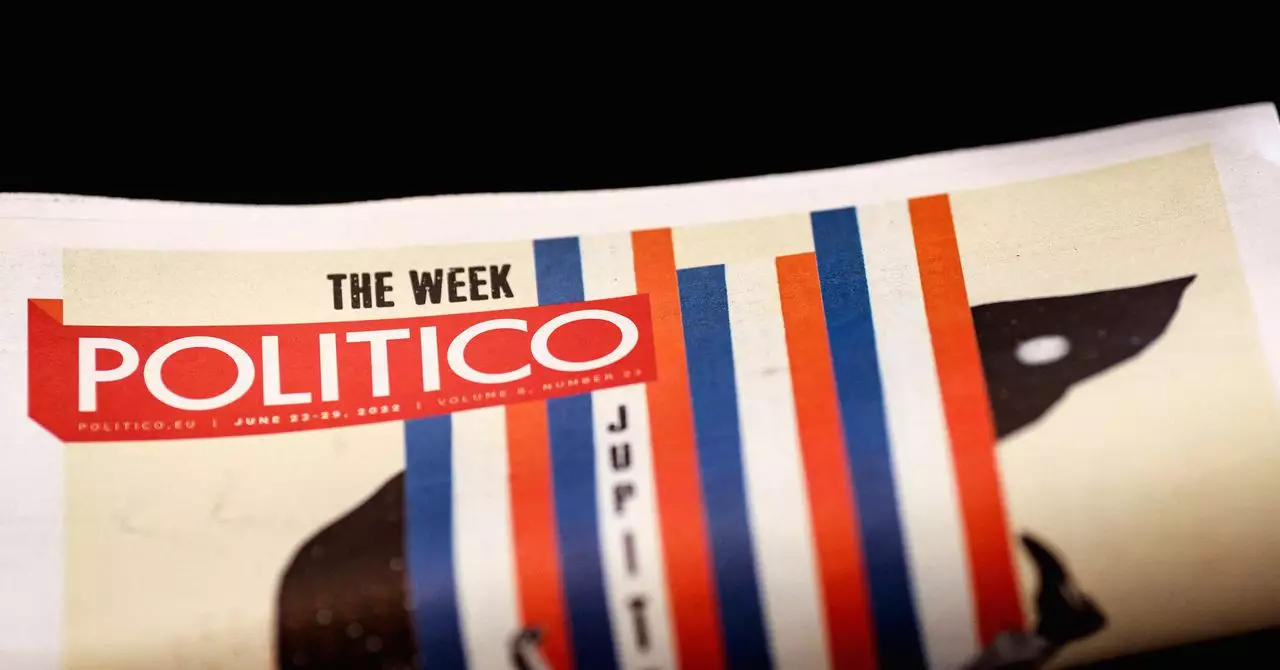In a rapidly evolving media landscape, the integration of artificial intelligence (AI) has become a double-edged sword. On one hand, AI can streamline operations, enhance productivity, and create innovative content. On the other hand, it raises significant concerns regarding ethical standards and job security for human journalists. In recent developments, Politico, a prominent news organization, has found itself at the center of this ongoing dialogue, as employees represented by the PEN Guild prepare for legal action against management. This dispute revolves around allegations that AI implementations in Politico’s operations have infringed upon the terms of their union contract—an issue that may shape the future of media and technology interactions.
AI and the Changing Nature of Journalism
The penetration of AI into various job sectors, including journalism, has sparked critical discussions about what it means to be a journalist in the digital age. At Politico, the introduction of AI-generated news summaries during significant political events has showcased the potential for this technology to enhance news coverage. However, these advancements also carry intrinsic risks. The casual roll-out of AI tools, such as the Policy Intelligence Assistance program offered to subscribers, raises alarms about the oversight and ethical implications involved. Employees at Politico argue that these automated systems lack the nuanced understanding that human reporters inherently possess, thus prompting questions about the quality and integrity of AI-generated content.
During a time of heightened political tension, the ability to deliver accurate and unbiased news is paramount. When AI-generated content mistakenly attributes actions to individuals inaccurately or uses inflammatory language—like referring to “criminal migrants”—it not only misleads the audience but also contradicts the principles of responsible journalism. Such discrepancies highlight the pressing need for stringent oversight of AI applications in newsrooms and reinforce the argument that human oversight is not just beneficial but essential.
Legal and Ethical Consequences of AI Utilization
As the PEN Guild prepares for arbitration, the implications of this dispute transcend individual contracts. They embody a broader struggle for journalism as a profession to retain its integrity amidst the encroachment of technology. Union chair and E&E public health reporter Ariel Wittenberg asserts that journalists should have a say in determining how AI integrates into their workflows. With no federal regulations specifically addressing AI’s role in journalism, the contract between Politico and its union represents one of the few existing frameworks for accountability.
The core of the argument lies in whether Politico adhered to its obligations outlined in the contract regarding the use of new technology that materially affects job functions. They were supposed to notify the union ahead of implementing new systems that would influence the role of human reporters. Allegations of failure to do so not only challenge the contractual relationship between management and staff but also cast doubt on the ethical guidelines governing AI’s application in journalism.
Future of Journalism in the AI Era
As media outlets grapple with the advantages and pitfalls of AI, the outcome of this dispute at Politico will likely resonate beyond its own walls. The case could set critical precedents regarding the rights of journalists as technology continues to permeate the industry. Journalists are not merely content creators; they are integral to the democratic process, shaping public discourse and opinion. Therefore, it is vital that the ethical standards guiding AI implementations in journalism reflect the values the profession upholds.
The union’s clear stance underscores the importance of maintaining the integrity of journalistic work in a world where AI can easily take the reins. Instead of viewing AI as a replacement for human talent, media organizations must consider it a tool that augments the skills of seasoned reporters. The narrative around AI should focus on its capability to enhance human work rather than diminish it, ensuring that journalists are empowered, equipped with the necessary resources to navigate this new frontier, and that their voices remain critical in the conversation about the future of news.
In the end, the Politico case serves as a stark reminder: ethical journalism cannot afford to be sacrificed on the altar of technological advancement. Journalists must assert their rights and defend the principles that underpin their craft, ensuring that as AI evolves, it does so in a manner that protects not only the media landscape but also the society it serves.

